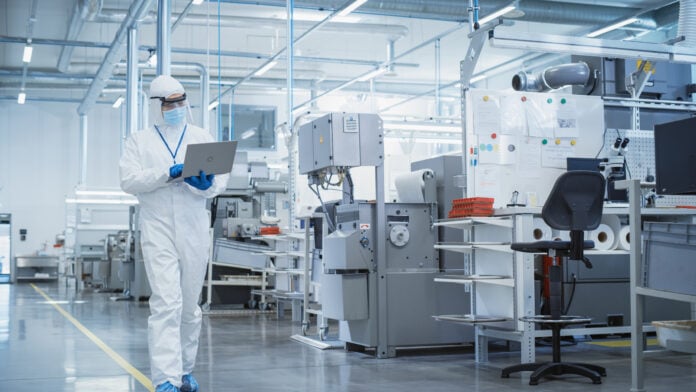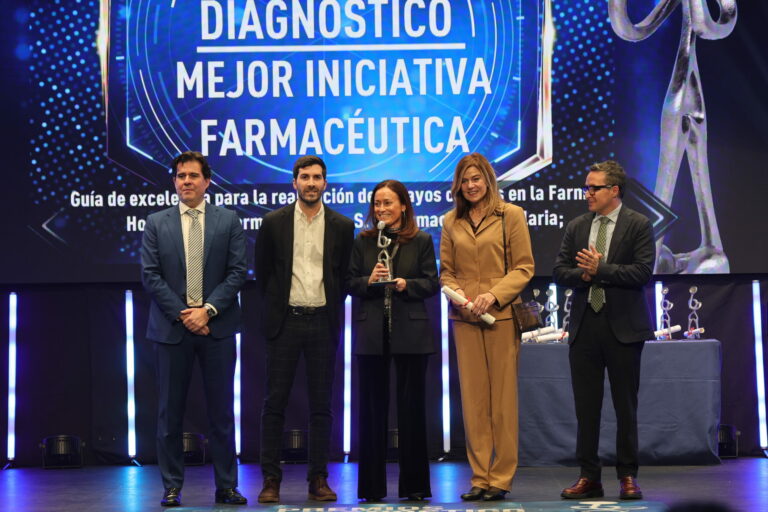An appropriate regulatory framework and more impetus for innovation, key to increasing competitiveness in biomedical research

The XVIII Conference of Biomedical Research Technology Platforms brings together in Madrid more than 200 representatives from public administrations, regulatory agencies, universities and companies to analyse and debate the challenges facing the biomedical research ecosystem in our country.

Farmaindustria.es
Madrid hosted the eighteenth edition of the annual Conference of Biomedical Research Technology Platforms in Spain, promoted by Farmaindustria’s Spanish Technology Platform for Innovative Medicines in collaboration with the platforms of Fenin, AseBio, Veterindustria and Nanomed Spain.
The event brought together more than 200 representatives from public administrations, the regulatory agency, universities and companies under the title How to increase Spain’s competitiveness in biomedical research. During the conference, the factors for increasing competitiveness in translational research and clinical research, as well as the keys to sustainability and the promotion of innovation, were analysed, among others. The inaugural conference was given by the Director General of Data of the Ministry for Digital Transformation and the Civil Service, Ruth del Campo, who addressed the opportunities in the use of data for the promotion of biomedical research.
During the inauguration, the president of Farmaindustria, Fina Lladós Canela, spoke about the current context of uncertainty, and recalled that while Europe was a leader in biomedical R&D 20 years ago, in recent years Asia and the US have gained ground and make it even more relevant to encourage innovation: “We need a new European pharmaceutical legislation that protects industrial property and promotes innovation. In our country we should achieve a truly transformative legislation, minimising short-termism and with a purely economic focus, and prepare our healthcare for the next 20 years.
Rocío Arroyo, president of AseBio, expressed herself along the same lines, stressing that for the biotechnology sector, made up of around a thousand companies (mainly SMEs and micro-SMEs), the new regulatory environment will be ‘absolutely decisive if we want Spain to increase its competitiveness in biomedical innovation’. “Biotech companies are developing truly disruptive solutions that are transforming how we diagnose and treat diseases. However, the path they take to bring these innovations to the patient is complex and requires an ecosystem that allows them to scale, accelerate and compete internationally. We need a stable, agile and predictable framework that understands the idiosyncrasies of the sector and facilitates its growth. Only then will we be able to turn the science we generate into welfare and economic leadership,” he said.
In the field of healthcare technology, the secretary general of Fenin, Pablo Crespo, underlined the continued commitment to investment. “The Healthcare Technology Sector maintains a constant commitment to investment in R&D and innovation. In 2024, the number of patents registered by our companies in Spain increased by 14%. The current international geopolitical context makes it even more necessary to protect the competitiveness of our industry through Open Strategic Autonomy in Europe and with the development of a National Industrialisation Plan for our sector,” said Crespo.
Another of this year’s themes is clinical trials and comparative research in human and animal health. Santiago de Andrés, president of Veterindustria, affirms that “there is only ONE HEALTH, we cannot see health in watertight compartments. The health of ecosystems is interconnected with our health and that of animals. In our case, the Spanish animal health and nutrition industry is a sector that is constantly innovating. In 2024, the EMA authorised 25 new veterinary medicines, the highest number of authorisations in one year. Of these, two had a new active substance that had not previously been authorised in a veterinary medicine in the EU. 14 were vaccines, including seven that had been developed through a biotechnological process,” he explained during the introduction.
This year marks two decades since the first call for support for Technology Platforms, public-private collaborative structures supported by the State Research Agency (AEI). Both the Spanish Technology Platform for Innovative Medicines and the Spanish Nanomedicine Platform were created in 2005 and have been key players in promoting research and development for two decades now.
This is what the scientific director of Nanomed Spain, Josep Samitier, wanted to recall during his speech: “This year is also very special for us: we are celebrating the 20th anniversary of the Spanish Nanomedicine Platform (Nanomed Spain). Two decades promoting research, innovation and collaboration in a field that, since its inception, has been characterised by its transformative potential and the confluence of multiple disciplines”.





